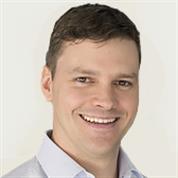
- This event has passed.
Towards a Flexible Software-Defined Network Ecosystem
2017-01-18 @ 2:00 PM - 3:00 PM
Event Navigation

The next generation of networks will need to offer capabilities far beyond
the current Internet to accommodate the requirements for global-scale
interconnection of Internet-of-Things devices and cyber-physical systems
such
as smart cities, smart grids, and autonomous automobiles. This requires a
transformation of existing, rigid infrastructure into Software-Defined
Infrastructure (SDI): deeply programmable, highly interconnected,
virtualized
systems spanning many administrative domains. Current technological trends
such as Software-Defined Networking (SDN), Network Function Virtualization
(SDN) and Programmable Dataplanes are key enablers to this transformation.
Software-Defined eXchanges (SDXes) are emerging as interconnection points
between multiple SDI domains and promise to significantly increase the
flexibility and function of interdomain traffic delivery.
This talk will present one particular approach, as embodied within the H2020
ENDEAVOUR project, to enable the next generation of programmatic network
services in SDXes. We discuss the design and implementation of iSDX, the
first SDX architecture that can operate at the scale of the largest Internet
eXchange Points (IXPs). Our public release of iSDX, complete with tutorials
and documentation, is already spurring early adoption in operational
networks. Further, we discuss the design of SIXPACK, a Route Server (RS)
service that leverages Secure Multi-Party Computation (SMPC) techniques to
keep peering policies confidential, while realizing the same functionalities
as today’s RSes. We conclude with a series of challenges in achieving the
above vision, which will require a sound understanding of the formal
foundations about SDXes as well as interdisciplinary research investigating
the role of SDXes in addressing major societal problems.
Bio:
Marco Canini is an assistant professor in Computer Science at KAUST. Marco
obtained his Ph.D. in computer science and engineering from the
University of
Genoa in 2009 after spending the last year as a visiting student at the
University of Cambridge, Computer Laboratory. He was a postdoctoral
researcher at EPFL from 2009 to 2012 and after that a senior research
scientist for one year at Deutsche Telekom Innovation Labs & TU Berlin.
Before joining KAUST, he was an assistant professor at the Université
catholique de Louvain. He also held positions at Intel Research and Google.